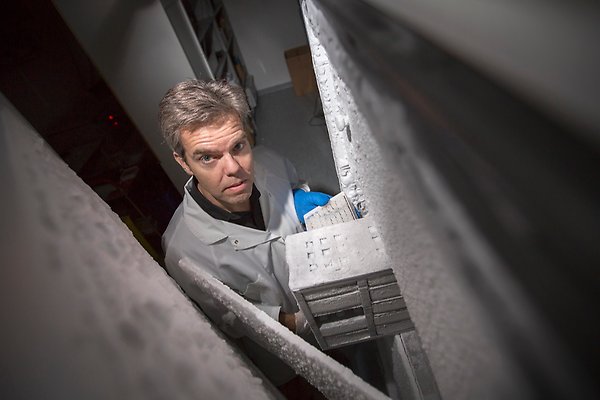Oncolytic Virus Fund - Support the First Clinical Study
The Oncolytic Virus Fund was started to support research on a new approach to treating neuroendocrine cancer.
Over the last 30 years, the number of people diagnosed with neuroendocrine cancers has increased fivefold. Public awareness of this form of cancer spread when the founder of Apple, Steve Jobs, died of pancreatic neuroendocrine cancer.
Since 2008, Uppsala researcher Magnus Essand and his research team at the Department of Immunology, Genetics and Pathology have been working on a completely new approach to treating neuroendocrine tumours. The treatment consists of an oncolytic virus, which has turned out to be remarkably effective in destroying neuroendocrine tumours in mice.
Support the Oncolytic Virus Fund

Prof. Magnus Essand
The first clinical study
Like other virus therapies developed around the world, the oncolytic virus is expected to be safe and have few side-effects for human patients. To find out whether the new treatment is as effective in human patients as it is in mice, it needs to be thoroughly tested in clinical trials. The research is expensive and financial support is needed to make the necessary clinical studies possible.
Thanks to donations from thousands of people, including a gift of two million Swiss francs from the late entrepreneur Vince Hamilton, the Oncolytic Virus Fund has collected sufficient funds to allow Professor Essand and his team to start the world’s first clinical trial using an oncolytic virus to treat neuroendocrine tumours. The virus therapy has been named AdVince, in recognition of Vince Hamilton’s commitment and his strong support for this research.
However, the research still needs further support. All financial contributions will be used for research on virus therapies for neuroendocrine tumours.
